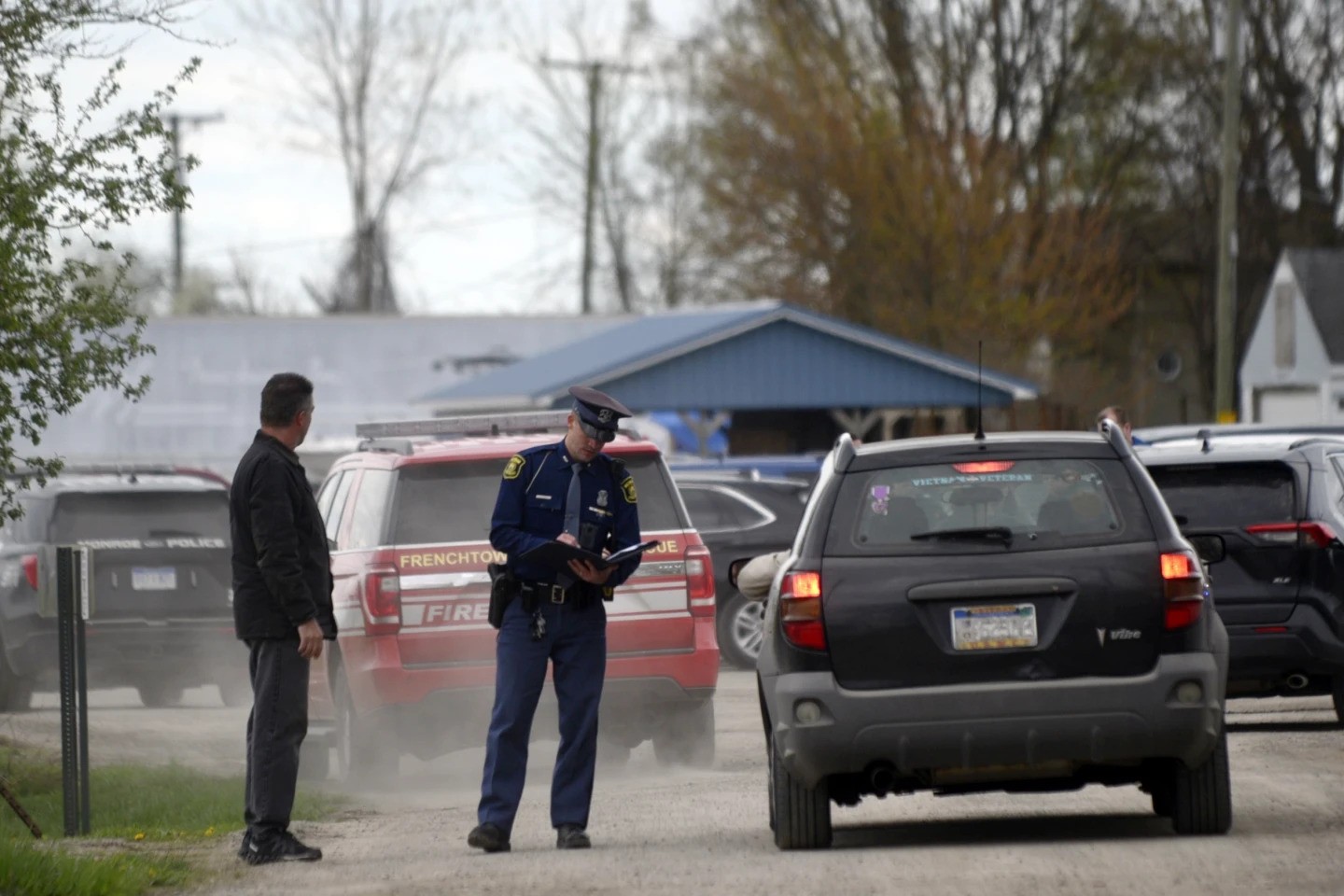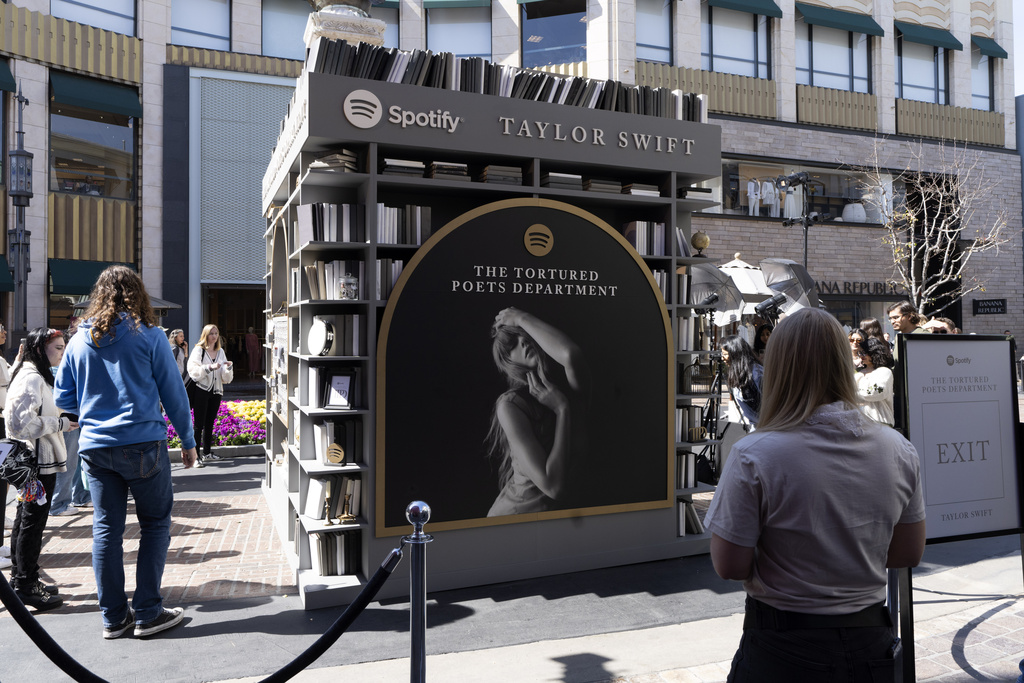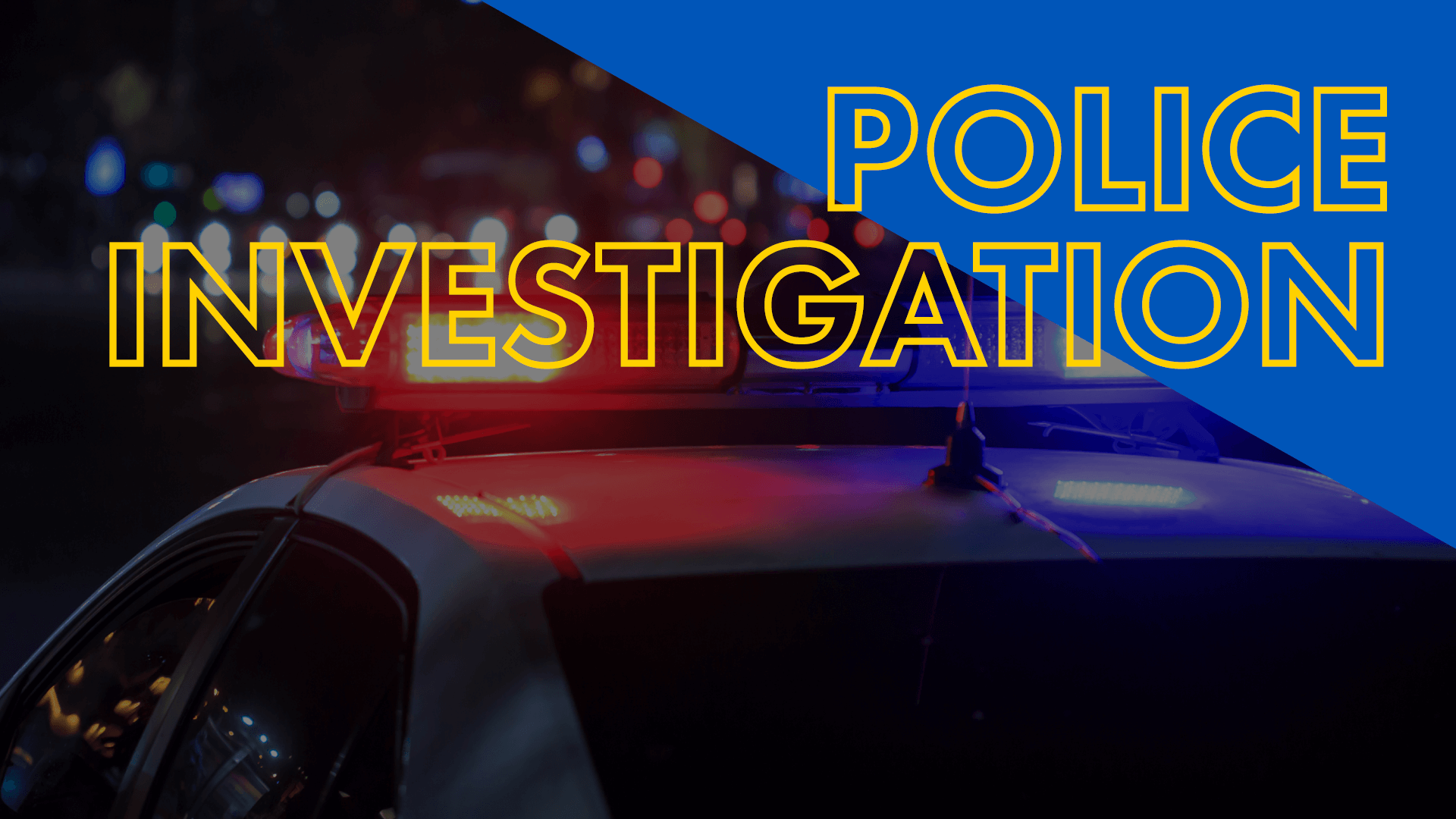
The White House announced changes to the Paycheck Protection Program, trying to shift the loan system to allow small businesses, those under 20 employees, a better chance to get help paying bills.
The new plan will allow small businesses a two week window where they are the only ones allowed to apply. The requirements and qualifications will loosen to make more businesses eligible. The idea is to help these businesses survive the pandemic.
“This definitely was something we just couldn’t plan for,” said Shelley Steven, owner of Downtown Threadz in Newaygo.
Nobody planned on the pandemic and maybe no sector was hit harder than small businesses.
“American small businesses are hurting,” said President Biden in an address Monday afternoon, “Hurting badly and they need help now.”
Small businesses make up 44% of the Gross Domestic Product and already 400,000 have closed in the past year due to the pandemic.
“I feel that we were forgotten sort of,” said Steven, “Because there was a finite amount of money available.”
This week President Biden says the PPP will shift its focus to make it easier for small businesses to take advantage and preserving the small downtown areas.
“Walk down on the Main Street and you see empty storefronts, goodbye signs hanging in the windows,” said Biden.
“We don’t see it as less competition, we see it as our community and diversity of what we offer is going down,” said Nick Looman, co-owner and brewer at Newaygo Brewing Company.
Your business may survive but if your neighbors don’t, it attracts less people overall. The first round of PPP loans saw small businesses squeezed out.
“For lots of small businesses, it was a huge benefit,” said Scott Swinehart of the River Country Chamber of Commerce, “But we saw a number that were just frustrated and said forget it, we’re done for a while.”
Many didn’t see the value of a loan, if the state is locked down.
“We have to pay this back? A lot of this is gonna be for wages but I don’t have anybody here. There’s nothing open, nobody’s working,” said Swinehart, “How do I pay wages if there’s no business?
Everyone trying to survive the best way they can, anyway they can.
“At the end of the day, I just wanna be able to stay open and run a business,” said Jason Sovinski, owner of the Sportsman’s Bar, “I don’t want a government hand out.”
Changes to the PPP system announced Monday are below:
- Institute a 14-day period, starting Wednesday, during which only businesses with fewer than 20 employees can apply for relief through the Program. 98 percent of small businesses have fewer than 20 employees. They are Main Street businesses that anchor our neighborhoods and help families build wealth. And while the Biden-Harris administration has directed significantly more relief to these smallest businesses in this round of PPP than in the prior round, these businesses often struggle more than larger businesses to collect the necessary paperwork and secure relief from a lender. The 14-day exclusive application period will allow lenders to focus on serving these smallest businesses. The Biden-Harris administration will also make a sustained effort to work with lenders and small business owners to ensure small businesses take maximum advantage of this two-week window.
- Help sole proprietors, independent contractors, and self-employed individuals receive more financial support. These types of businesses, which include home repair contractors, beauticians, and small independent retailers, make up a significant majority of all businesses. Of these businesses, those without employees are 70 percent owned by women and people of color. Yet many are structurally excluded from the PPP or were approved for as little as $1 because of how PPP loans are calculated. To address this problem, the Biden-Harris administration will revise the loan calculation formula for these applicants so that it offers more relief, and establish a $1 billion set aside for businesses in this category without employees located in low- and moderate-income (LMI) areas.
- Consistent with a bipartisan bill, eliminate an exclusionary restriction that prevents small business owners with prior non-fraud felony convictions from obtaining relief through the Paycheck Protection Program. Currently, a business is ineligible for PPP if it is at least 20 percent owned by an individual who has either: (1) an arrest or conviction for a felony related to financial assistance fraud within the previous five years; or (2) any other felony within the previous year. To expand access to PPP, the Biden-Harris administration will adopt bipartisan reforms included in the PPP Second Chance Act, co-sponsored by Senators Ben Cardin (D-MD), Rob Portman (R-OH), Cory Booker (D-NJ), and James Lankford (R-OK), which would eliminate the second restriction (the one-year look-back) unless the applicant or owner is incarcerated at the time of the application.
- Eliminate an exclusionary restriction that prevents small business owners who are delinquent on their federal student loans from obtaining relief through the Paycheck Protection Program. Currently, the PPP is not available to any business with at least 20 percent ownership by an individual who is currently delinquent or has defaulted within the last seven years on a federal debt, including a student loan. Millions of Americans are delinquent on student loans, including a disproportionate number of Black borrowers. Working with the Departments of the Treasury and Education, the SBA will remove the student loan delinquency restriction to broaden access to the PPP.
- Ensure access for non-citizen small business owners who are lawful U.S. residents by clarifying that they may use Individual Taxpayer Identification Numbers (ITINs) to apply for relief. The PPP statute is clear that all lawful U.S. residents may access the program, but a lack of guidance from the SBA has created inconsistency in access for ITIN holders like Green Card holders or those here on a visa. The SBA will address this unfair inconsistency by issuing clear guidance in the coming days that otherwise eligible applicants cannot be denied access to the PPP because they use ITINs to pay their taxes.
In addition to these five changes, the Biden-Harris administration has taken – and will continue to take – steps to ensure equitable distribution of relief that values each and every taxpayer dollar. These steps include:
- Addressing waste, fraud, and abuse across all federal programs. Unlike the previous round of the PPP, loan guaranty approval is now contingent on passing SBA fraud checks, Treasury’s Do Not Pay database, and public records. The SBA now also conducts manual loan reviews for the largest loans in the PPP portfolio and a random sampling of other loans. The SBA has worked, and will continue to work, with its lender partners to create streamlined processes to resolve issues as quickly as possible, while still ensuring taxpayer dollars are spent wisely.
- Promoting transparency and accountability by improving the PPP loan application. To encourage self-reporting of demographic data and better illustrate the impact the PPP is having across various population segments, the Biden-Harris administration has revamped the PPP application.
- Improving the Emergency Relief Digital Front Door. The Biden-Harris administration is working to update key areas of SBA websites to help more applicants find resources for understanding relief options and completing applications.
- Continuing to conduct extensive stakeholder outreach to learn more about challenges and opportunities in the implementation of current emergency relief programs. The President has spoken with several small businesses owners in recent weeks to understand their concerns about relief program. And as part of the Administration’s efforts to support America’s small businesses, especially those in LMI communities, the Vice President spoke last week with the CEOs of major banks, to highlight the critical period ahead, the vital role that lenders have to play during this time, and the Administration’s focus on PPP lending to underserved small businesses. In recent weeks, the Vice President has also met virtually with small business owners and Black Chambers of Commerce to discuss the challenges that small businesses face right now, and how passing the American Rescue Plan will provide critical relief during a difficult period. At all levels and across agencies, the administration will continue to engage with communities to inform the design and delivery of vital programs that meet their needs.
- Enhancing the current lender engagement model. As part of the Biden-Harris Administration’s commitment to further improve access to capital for small businesses, the SBA is launching a new initiative to deepen its relationships with lenders. This model will increase opportunity for lenders to provide recommendations and ask questions about the PPP and drive resolution of open questions and concerns in a more streamlined way.

© 2023 - 910 Media Group


